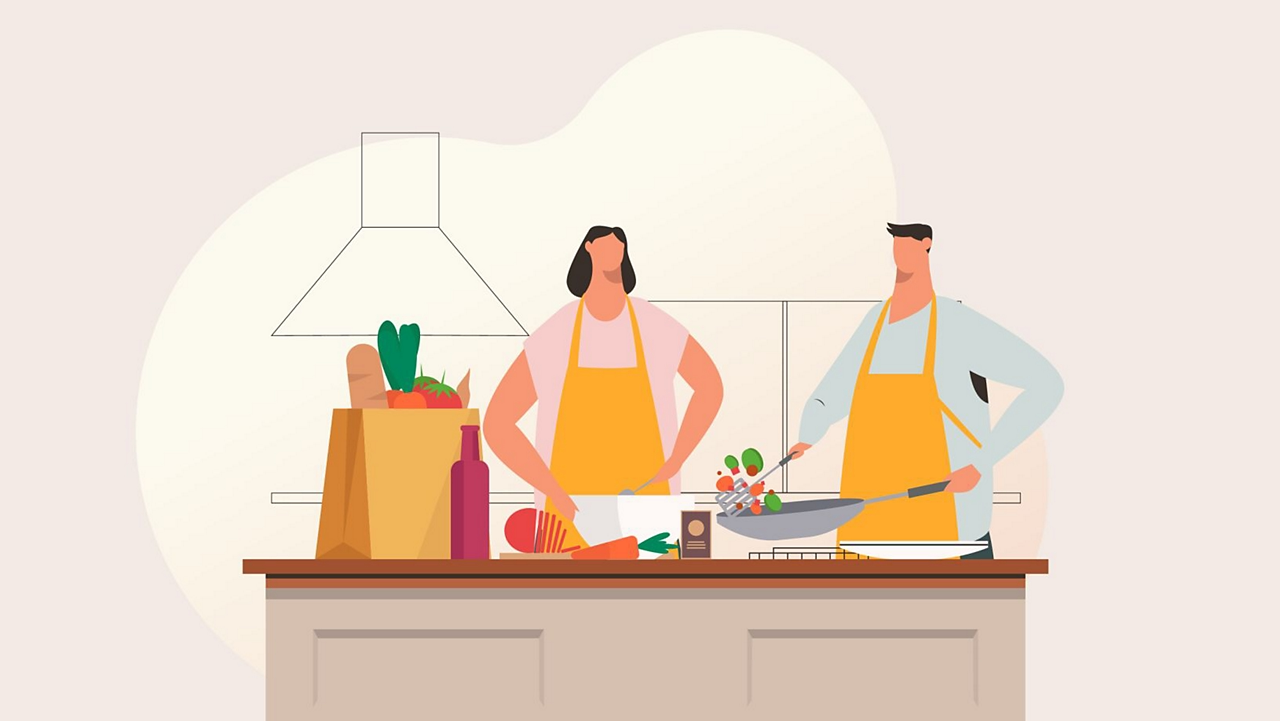From Cooks to Chefs: Breaking Stereotypes for Women in the F&B Industry
By Pankaj Bhadouria | MasterChef |Mar 07, 2023
‘Women make good cooks, but men make better chefs’ — an old saying which depicts the beliefs of most people in the food business. Cooking has traditionally been looked at as one of the household duties that a woman must fulfil and is essentially thankless, unpaid work. On the contrary, professional kitchens are flooded with men leading the baton with very little scope for female chefs to enter the business and even when they do, there is a disparity in the roles assigned. How then, can women around the world break this barrier of discrimination in the food industry? MasterChef Pankaj Bhadouria sheds light on these issues in her gripping piece.
The food and beverage industry has long been dominated by men. The traditional gender roles dictate that the domestic kitchen is a woman’s sanctum, while the professional kitchens remain a man's arena. Today, the food industry has branched out into several domains where women are not only employed as hotel management trainees and head chefs but have also paved their way to become food entrepreneurs and restaurateurs. FMCG companies, hotels, and restaurant/café owners seek the expertise of women chefs for menu curation, ideation of new food items, and managing a kitchen. However, despite their contributions, only 25% of women hold senior management positions in the food industry in India, while less than 10% hold CEO positions.[1]
Women continue to face significant barriers and challenges that have limited their opportunities for advancement and recognition within the industry. Some of the significant hurdles faced by women in this industry include:
- Gender Bias and Discrimination: Women in the food and beverage industry often face gender-based bias and discrimination in the workplace which can result in limited opportunities for advancement. Additionally, the gender pay gap in India is significant, with women earning 19% less than men on average, according to a report by the International Labour Organization.[2] This can make it difficult for women to achieve financial independence and invest in their businesses.
- Lack of Mentorship and Sponsorship: The mentor-mentee relationship is a core element of the culinary industry. It is also vital to cope with and adapt to the changing market trends in the industry. According to a report by the National Restaurant Association of India, women comprise only 10% of the leadership positions in the food service industry in the country.[3] This makes it difficult for women to access mentorship, training, and development opportunities that could help them advance in their careers.
- Work-Life Balance: Long hours and demanding schedules are one of the biggest reasons why women in this industry are left behind. The dual responsibility of running a household along with working towards professional commitments takes a huge toll on the women in this industry. According to a report by Oxfam India, women who work in the food industry can work up to 12-14 hours a day, with little time for rest or breaks. This can lead to physical and mental exhaustion, as well as burnout, which can negatively impact their health and wellbeing.[4]
- Stereotyping and Traditional Gender Roles: Traditional gender roles and stereotypes, such as the belief that cooking is a woman's job and that professional kitchens are a man's domain, can limit opportunities for women in the industry. Sometimes, the trainees also have a tough time taking orders from women. These beliefs can also result in a lack of recognition for the achievements and contributions of women in the industry.
- Military-style Kitchens: It is common knowledge that professional kitchens have a strict atmosphere where discipline and hierarchy reign supreme. The masculine expectations of such a system refuse to accept women due to the attached gender stereotypes that prevail in the industry. Hierarchies are strict, and seniority and experience are often valued more than skill and talent. Women are not given equal opportunities to rise through the ranks, creating a culture that can be hostile towards their success.
This raises the question of how women can break through these barriers and achieve equal representation in the food industry. Breaking through these barriers would require concerted efforts from industry leaders and stakeholders, towards promoting gender equality and diversity, providing mentorship and sponsorship opportunities, and addressing work-life balance concerns. This would not only incentivise women to join the food industry but also facilitate their transformation into successful entrepreneurs.
Challenges in Building a Successful Restaurant Business
When it comes to building a restaurant, individuals must know that it is a complex and challenging process that requires careful planning, execution, and ongoing management. Despite the rewards that can come with owning and operating a successful restaurant, there are several significant barriers that must be overcome in order to succeed. These barriers can get exaggerated when women entrepreneurs try to enter the sector. Some of the most common challenges faced by aspiring restaurateurs include:
- Financing: Women often face difficulty in accessing capital and loans from financial institutions due to gender bias. Traditional lending institutions may be hesitant to lend money to women entrepreneurs, particularly those in the food industry which is still often perceived as a “man’s world”. Additionally, due to the high-risk nature of the restaurant industry, many lenders are reluctant to provide financing to aspiring restaurateurs. A 2019 report by Bain & Company found that women entrepreneurs in India receive only 3% of total venture capital funding.[5] In addition, women often have less collateral to offer when applying for loans.
- Mentorship and Business Planning: A comprehensive business plan with a detailed market analysis, marketing plan, budget and financial projections, and risk management plan, is essential for the success of the restaurant. With the help of the right network and mentors, women would be able to achieve this efficiently.
Adapting to the Turbulent Business Atmosphere
It is important to give due credit to the women in the food industry in India who have demonstrated remarkable adaptability and agility in overcoming the challenges they face. These trailblazing women in the Indian culinary industry have refused to be held back by these obstacles and have worked tirelessly to develop their culinary skills, taken advantage of education and training opportunities, and created supportive networks to help them succeed. Many of the woman food entrepreneurs and chefs altered their way of doing business in order to make a larger impact for the society and the environment. For example, the founder of a healthy snack brand optimised the use of her resources by sourcing ingredients directly from farmers, eliminating middlemen, and reducing costs. There are many such ways in which women have adapted and honed themselves in order to break the barrier.
- Innovation: Women in the industry have been innovative in their cuisine and are known for their unique recipes and dishes. They have adapted traditional recipes to modern tastes and dietary needs and have introduced new ingredients and flavours to Indian cuisine. This has not only helped them stand out in a competitive industry but has also contributed to the diversification and enrichment of Indian culinary culture. They have also optimised the rise of social media and online platforms, and have been able to market their businesses and reach a wider audience. Many women chefs have used social media to showcase their food, build a following, and create a brand identity.
- Adapting to market trends: Women in the food industry have also been agile in responding to changing market demands and consumer preferences. For example, during the COVID-19 pandemic, when many restaurants were forced to shut down or reduce their operations, women in the food industry quickly pivoted to delivery and takeout services. Many restaurants and catering businesses started offering meal kits and DIY cooking packages, which allowed customers to recreate their favourite dishes at home. This not only helped to generate revenue during a difficult time, but also showed a willingness to adapt and innovate in response to changing circumstances.
- Effective leadership: The refined change in approach to leadership and management has been a game changer. Many women chefs and restaurant owners have adopted a collaborative and inclusive leadership style, which values teamwork, communication, and creativity. They have also been proactive in promoting gender equality and diversity within their organisations, by hiring and training more women and people from marginalised communities. This has not only created a more inclusive and supportive work environment, but has also helped in building strong and loyal teams that are invested in the success of the business.
While the culinary industry still has a significant journey ahead to achieve a truly inclusive and diverse working environment, the success stories of several women who have overcome various challenges in this field have inspired and motivated other women to consider culinary arts as a viable career choice. In recent years, there has been a noticeable rise in the number of women pursuing culinary arts, and this influx of female talent is helping to break down some of the long-standing gender barriers that have traditionally held women back in this industry.
Furthermore, the increasing demand for healthy, organic, and sustainable food has created opportunities for women to make a significant impact in the industry, particularly in areas such as farm-to-table initiatives and eco-friendly food production. Women chefs and entrepreneurs are leading the way in creating healthier and more sustainable food options, while also promoting social and environmental responsibility.
Even in an environment of bias, discrimination, and poor representation, women have been able to take the initiative to start their own businesses and ventures, showcasing their creativity and expertise in the food industry. Therefore, with the help of supportive networks and resources, women in the culinary field can continue to reach new heights and achieve greater success.
[1] National Restaurant Association of India. (2018). India Food Services Report 2018. New Delhi, India: NRAI.
[2] International Labour Organization. (2018). Women and men in the informal economy: A statistical picture (Third edition). Geneva, Switzerland: International Labour Office.
[3] Datta, A. (2019, August 29). Women Chefs & the Food Industry: Breaking the Glass Ceiling. India Development Review. Retrieved from https://idronline.org/women-chefs-the-food-industry-breaking-the-glass-ceiling/
[4] Oxfam India. (2019). The Future of Work in the Food Industry: Exploring the Investment Potential of Women Workers in the Food Industry in India. New Delhi, India: Oxfam India.
[5] Bain and Company and Google. (2019). Powering of the Economy with Her. https://www.bain.com/contentassets/dd3604b612d84aa48a0b120f0b589532/report_powering_the_economy_with_her_-_women_entrepreneurship_in-india.pdf

Pankaj Bhadouria | MasterChef
Pankaj Bhadouria is India’s first MasterChef. She has hosted more than 15 TV shows on leading channels and has authored five books. She is also a feature writer for several leading magazines, a speaker at many TEDx events, an entrepreneur, and an educator. In 2012, she established the Pankaj Bhadouria Culinary Academy in Lucknow and has trained more than 3500 budding chefs and helped them carve a career in the hospitality industry. She also turned restaurateur and owns the Uppercase Diner in Lucknow.




